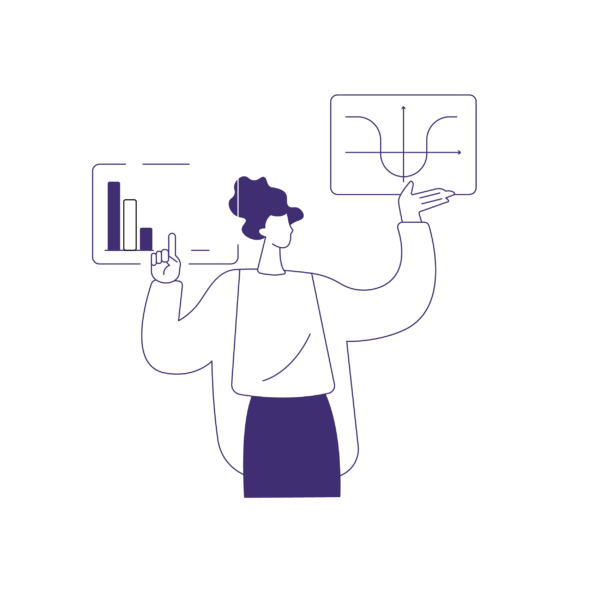
In crisis management, knowing what influences the decision making of the organization's leaders helps to mitigate risks – Photo: Shutterstock
Every day, professionals in leadership positions make dozens of everyday choices. But how to act when there is risk involved and the future of the organization is linked to a resolution? Among the main missions of the leader – and one of the most complex ones – decision-making can be very rewarding. However, the choice is not always the most effective, either because it goes down the wrong path, because of excessive expectations or even because it repeats the same formula. In crisis management processes, knowing what influences decision-making – one's own and those of third parties – can make all the difference in mitigating risks, avoiding adversity, in addition to preserving relationships with different stakeholders.
Skills, behaviors, experiences, as well as the values and mission of the leader, among other factors, influence decision-making – also crucial in the reputation journey. Therefore, we used the decision-making profiles defined by the American writer Cheryl Strauss Einhorn, author of two books on solving complex problems, to analyze the impact on reputation in light of each style.
CEO of Decisive, a leadership training and career development company based in New York, Cheryl identified five profiles of decision-making styles, built from strengths and weaknesses, revealing habits and behavior patterns when making decisions. It proposes that leaders analyze the strategy usually adopted in their deliberations, noting why they follow certain steps, the strengths of the approach, as well as which behaviors can get in the way and lead them to wrong attitudes or make them believe they are always on the right path.
Once the style of approach is well understood, the leader can strengthen his own characteristics or make use of those of other profiles – in addition to identifying the cognitive biases that can disturb the whole process – he says, in an article from August 2022 in Harvard Business Review.
Know how to identify the different profiles and the impact on the reputation of each one:

Adventurous
Adventurous: Agile, determined, trusts instinct and doesn't make assumptions. Although the style works well for some decisions, in others it can be a shot in the foot, because, optimists that they are, they can slip into deadlines and still decide without considering the people involved in the process. For them, the recommendation is to assess how and if the process worked in previous decisions and ensure that all those involved are included, before hitting the hammer.
The impact on reputation: In order not to pass an arrogant and authoritarian image, undermining engagement in their resolutions, special attention is needed to postures and attitudes of this type of leader. Reputation dimensions that have an impact on the vision of leadership must be observed: agility cannot be confused with superficiality in conducting business, nor leave room for questioning ethical conduct.

Detective
Detective: You base decisions primarily on information, data, and evidence rather than feelings, which can take you away from the bigger picture and lead you to address only part of the problem or even the whole issue wrongly. Furthermore, he may become a victim of his own poison, seeking confirmation of what he already believes in the data. To avoid these pitfalls, you must seek other perspectives on the information collected in people, their experience and knowledge.
The impact on reputation: This profile is another one that needs to be attentive to attitudes and postures, so as not to show a distant, hierarchical and low-engagement model of leadership, especially for the internal public. It is important to realize that the diversity of thoughts and points of view favors innovation, a dimension present in strong reputations.

Listener
Listener: Its great feature is listening to those involved, which guarantees support. The risk is failing to listen to those who do not agree with their opinion or accepting only those who approve of their resolutions, trusting others too much and being able to be highly influenced by people in positions of power. Before listening to others, it is better to do some self-reflection on what you consider most important for the outcome of the decision and, based on that, listen to opinions with more than one perspective.
The impact on reputation: The power of influence and the personal dimension are important dimensions of the leader's reputation. Therefore, this profile, which has positive characteristics in terms of listening and involving other people in decision-making, should, however, be careful not to convey a perception of hesitation and insecurity. A strong reputation needs a leader who has recognized legitimacy, based on knowledge and experience, and the ability to lead the business.

Thinker
Thinker: Carefully consider each option, evaluate the pros and cons of each one, taking the time you deem necessary to support your decision. Cautious, he chooses the safest path, even if it is not the best. The process can improve if you set deadlines for hammering and limit the time to stay in the field of ideas.
The impact on reputation: The profile's reputation can be damaged if the most analytical way of deciding is understood as delay, which can affect important reputation dimensions such as legitimacy, ability to lead the business and power of influence.

Visionary
Visionary: Prefers the most daring and innovative choice, even if it is not the most effective or the smartest. Therefore, the suggestion to the visionary is to clearly communicate his vision, share his objective and ask for an opinion on his ideas, if they are viable, if everyone knows their part, thus expanding the possibilities of improving the your decision process. Having a reputation associated with innovation is positive.
The impact on reputation: The issue for this profile is to ensure that your choices do not jeopardize the perception of your ability to share a vision of the future, which has a direct impact on leading a business, a fundamental leader skill. Exploring the characteristics of the communicator leader can help to alleviate misperceptions regarding this decision maker.



